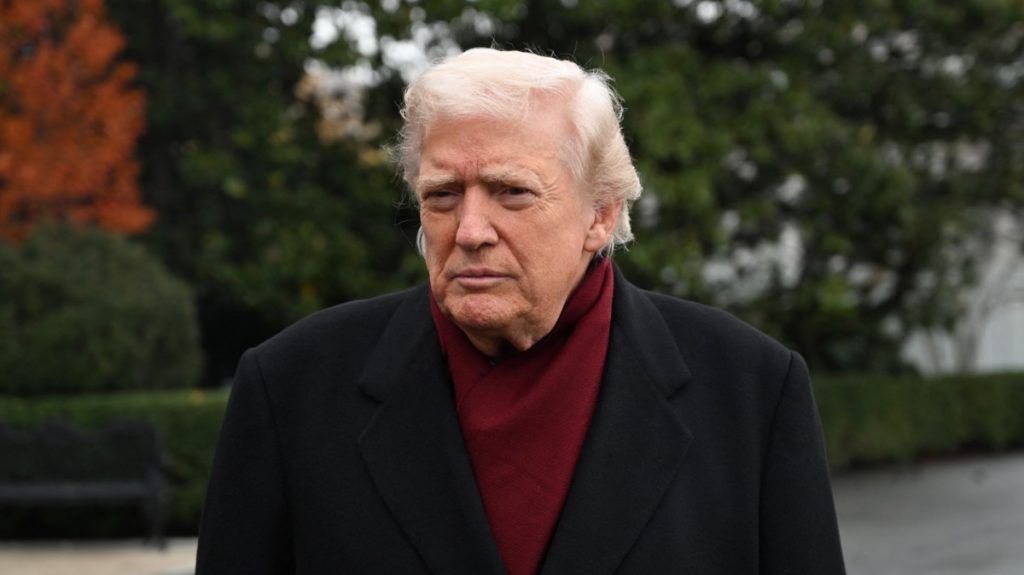Donald Trump’s recent announcement regarding his intention to designate the Muslim Brotherhood as a “foreign terrorist organisation” (FTO) has ignited a firestorm of debate and scrutiny. The former US President stated his plans over the weekend, claiming the designation “will be done in the strongest and most powerful terms” with “final documents” currently being drafted. Though not officially commented on by the White House at first, the statement was subsequently reshared by his press secretary, Karoline Leavitt, lending considerable weight to the proposition. This move comes alongside escalating pressure from Congress to officially label the group as a terrorist entity, raising vital questions about regional security, US foreign policy, and the very definition of terrorism.
Congressional Push and Executive Power
The push for formal designation isn’t solely coming from the executive branch. Republican Senator Ted Cruz is actively championing legislation to declare the Muslim Brotherhood a terror organisation, garnering support from fellow Republicans like Tom Cotton, and surprisingly, even from Democratic Senator John Fetterman. Simultaneously, a similar bill exists in the House of Representatives, boasting bipartisan co-sponsorship including Jared Moskowitz, Thomas Suozzi, and John Gottheimer.
However, surprisingly, Trump doesn’t necessarily need new legislation. The existing Immigration and Nationality Act grants the power to designate groups as FTOs to the Secretary of State. This process requires a determination that the organization is foreign-based and actively engaged in terrorist activities threatening the United States. It’s a process with significant implications for the group’s access to US financial systems and its ability to operate internationally.
Is the Muslim Brotherhood a US National Security Threat?
Experts are deeply divided on whether such a designation is warranted. Middle East Eye consulted George Washington University professor Nathan Brown, a renowned specialist in Middle Eastern politics, who dismissed the notion of a threat. “None at all,” he unequivocally stated. This highlights a core point of contention: the lack of direct evidence linking the Muslim Brotherhood to attacks against US interests.
The debate centers on whether the group’s ideology and historical associations with more radical factions are sufficient justification for an FTO designation, or if it’s a disproportionate response driven by regional political pressures.
Trump’s History and Regional Dynamics
This isn’t a new initiative; it’s a continuation of efforts dating back to Trump’s first administration. Reports from the New York Times suggest the idea gained significant momentum following a meeting between Trump and Egyptian President Abdel Fattah el-Sisi in 2019.
At the time, Trump’s National Security Advisor, John Bolton, and Secretary of State Mike Pompeo reportedly supported the move. However, US government lawyers, defense officials, and career national security personnel voiced strong objections, raising concerns about the legal and diplomatic ramifications. This underscores the internal disagreement within the US government regarding a blanket designation.
Recently, Texas Governor Greg Abbott designated the Muslim Brotherhood, alongside CAIR (Council on American-Islamic Relations) as both foreign terrorist organizations and transnational criminal organizations, effectively preventing them from acquiring land within the state. This local-level action reflects the increasing scrutiny the group faces in certain political circles.
Understanding the Muslim Brotherhood’s Evolution
To grasp the complexities of this situation, it’s vital to understand the Muslim Brotherhood’s history. Founded in Egypt in the late 1920s, it initially opposed British colonial rule, advocating for a return to Islamic principles. Throughout the 20th century, the group faced periods of both state repression and limited political participation. It gained significant traction in the wake of the 2011 Arab Spring uprisings, as secular authoritarian regimes crumbled.
The movement experienced a pivotal moment in 2012 when Mohamed Morsi, a member of the Brotherhood, became Egypt’s first democratically elected president. However, his tenure was short-lived, ending with a military coup led by Abdel Fattah el-Sisi in 2013. Sisi’s government has since brutally suppressed the Muslim Brotherhood, branding it a terrorist organisation and jailing thousands of its members.
This suppression contributed to a significant rift in the region, particularly between Turkey, Saudi Arabia, Qatar, and the UAE, with the latter two viewing the Brotherhood as an existential threat to their monarchical rule. While recent efforts have been made to mend ties between Gulf states, the issue of the Muslim Brotherhood remains a contentious source of division.
Affiliations and Complications in US Policy
The situation is further complicated by the fact that the Muslim Brotherhood operates less as a monolithic entity and more as a network of affiliated parties and groups, linked by shared ideology. This makes a blanket designation challenging from a legal standpoint.
Hamas, for instance, is widely considered an affiliate and was already designated a terrorist organisation in 1987. The US also previously labelled the Palestine Liberation Organisation (PLO) a terrorist group, demonstrating a willingness to re-evaluate designations.
Interestingly, the US has also engaged with leaders who have, at times, been associated with Islamist movements. Ahmed al-Sharaa, a former Syrian president, spent time in US prison but later founded al-Nusra Front, al-Qaeda’s Syrian branch, and was only recently removed from the US terror list. This seeming inconsistency in US policy further fuels the debate over the Muslim Brotherhood.
Potential Ramifications and Future Outlook
If Trump proceeds with the designation, the Muslim Brotherhood could appeal the decision in the US Court of Appeals. The lack of centralized leadership will likely be a key argument in their defense. Moreover, the US maintains relationships with governments that include individuals linked to groups affiliated with the Brotherhood, such as Yemen’s Islah party.
The potential consequences of this designation extend beyond US-Middle East relations. It could further destabilize the region, embolden authoritarian regimes, and potentially drive members of the Brotherhood towards more radical ideologies. Ultimately, the decision represents a significant crossroads in US foreign policy, demanding careful consideration of its potential ramifications.

